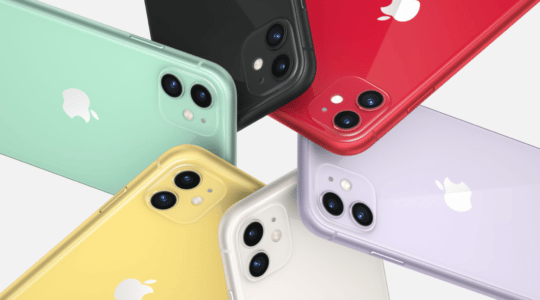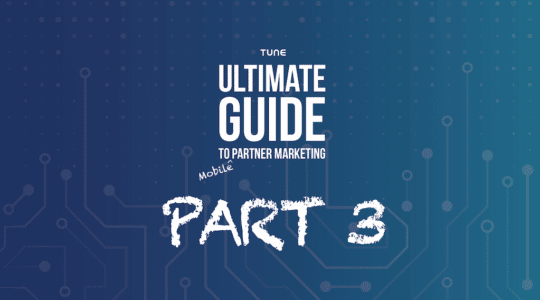Back in April, AppThwack posted a guest blog article from Ezra Siegel, Apptentive’s VP of Community, about protecting your mobile app from deletion. It’s a chronic problem based on the following grounds: Either people don’t like your app, or they don’t use it. In the first scenario, users’ expectations are not being met, while in the second, not enough value is being provided.
The post included some interesting data from a mobile app survey conducted by Apigee, which revealed that 99% of respondents said they would take action when apps don’t perform as expected or advertised. In fact, 44% said they would delete the app immediately.
As these survey numbers indicate, app deletion is a large problem for brands and marketers.Understanding the specific reasons why people get frustrated with or do not see enough value in your mobile app is critical. Below are the top 10 reasons why I’ll delete your mobile app. Consider this a target checklist to ensure that your users aren’t feeling frustrated with your app to the point of contemplating hitting the delete button:
Performance Issues. This is a BIG one. If an app throws out unexpected errors that interrupt my experience, I consider it a serious performance issue. For example, an issue like this is if the app freezes or hangs while I’m trying to use it. Even a slow performing app can keep me from interacting with an app. Ultimately, if I keep experiencing performance issues that prevent me from using the app, I’ll delete it.
It’s Not Intuitive. Complex navigation, small icons or buttons, and hidden information can lead to a confusing, maze-like experience. Why is this important? Because ultimately I’m interacting with your brand, which means (as discussed by BigDoor) that it’s an opportunity for you to drive customer loyalty, purchases, and retention. The end results of meeting user goals through an intuitive user experience is a win-win for both you as an app developer and for your customer who will keep using it.
App Not Optimized for Device. In the mobile world, it’s not uncommon for developers to “port” their existing smartphone apps to the tablet. As a result, the user experience is acutely limited because it doesn’t take into account the bigger screen size, and longer periods of immersive use. The longer I interact with your app, the shorter my attention span is to be lenient on a limited or distorted user experience. Be sure that your app is truly optimized for mobile, or else I’ll delete your app and find one that is truly optimized for my device.
False or Misleading Expectations. If an app fails set up proper expectations about its functionality and value, that’s a messy miss. Whether it’s a matter of feeling oversold or misled, there should be a clear and accurate understanding of how an app will perform and the value it will bring on a regular basis. I don’t want to be surprised when I download the app and wonder if I downloaded the right one.
Relevancy Shortfall. Give me a solid reason to engage with the app on a regular basis — focus on showing me things that I really care to engage with, along with the context. Not sure what’s at the top of my list? Provide me with a conduit for providing app feedback. Implementing value added features that are unique to the mobile app and its capabilities are a fresh yet relevant approach. Taking things a step further, an app that can look at specific behavioral patterns to implement more customized features would be fantastic. If I can interact with an app that has figured out a way to provide me with a deeper, more personalized level of value, I’m going to rely on it more and more. In that case, it’s hard to find a reason to delete it. Especially if many other apps aren’t offering a similar level of customization.
Unclear Browser vs. App Differentiation. When it’s difficult to tell the functionality or usability difference between an organization’s mobile browser experience and using their mobile app, there isn’t enough value to either install an app or keep it installed. An example of a browser vs. app experience that is executed well is the Paypal mobile site compared to the Paypal mobile app. If I visit Paypal.com on my mobile device, the main options I see aren’t keyed in on what I’d want to do quickly on my mobile device: ‘Go to Business Solutions’, ‘Find a Store’, and ‘Contact Us’. In contrast, the Paypal app focuses on the just the important things I want to do — send money, request money, transfer money, and withdraw money. Yes!
Advertising Overload. It can be distracting and irritating for pop-up ads to appear when engaging with an app, particularly if this happens when I am trying to get something important accomplished. Remember that the reason why I downloaded your app is to use it, so if ads are repeatedly preventing me from using it (even for 5 seconds at a time), the irritation factor heats up and the frustration isn’t worth it and I’ll delete your app.
Market Saturation. There is a good chance that there are a number of other apps on the market that offer a similar value proposition or experience, and do it better. This is where flawless execution and marketing are the essential ingredients for grabbing people’s attention and to keep them vested in your app. Failure to keep me engaged with relevant, value added features, combined with better marketing by another app, will cause me to delete your app. I’m not likely to download multiple apps that seem to provide me with similar results. In the long haul, I like to download and interact with only the most relevant and unique apps.
Dormant Innovation. It’s pretty evident that I won’t be getting any longer term value derived from an app that seems to be hibernating. By undertaking regular development improvements such as app features and content pushes, you’re sending a strong customer service message that you care about helping me get the most out of your app long term. The flipside is that when an app is stagnant, I’m more likely to uncover other apps that are consistently delivering on their innovative plans and providing with with even more value.
Lack of Disclosure. If you are going to be collecting my personal information, ask for my consent. In addition, disclose what you plan to do with my information so there is visibility into any short term or long term implications. Specifically, awareness of how my information will be used, and to what extent so there is a solid, mutual understanding.
What are the top reasons why you’ll delete a mobile app? What frustrates you the most? Share your thoughts in the comments.
Author
Becky is the Senior Content Marketing Manager at TUNE. Before TUNE, she led a variety of marketing and communications projects at San Francisco startups. Becky received her bachelor's degree in English from Wake Forest University. After living nearly a decade in San Francisco and Seattle, she has returned to her home of Charleston, SC, where you can find her enjoying the sun and salt water with her family.




Good list. And no, I dont make apps, but I do use them. I used to have an app for GPS on my DroidX from Google, but cant find it anymore now that Im upgraded to Razr M. Wish the one I had was still available, but for now I have crappy one that I cant stand. It had me go to an address one time, and when I arrived, it was about 5-6 miles from my real destination. And the supposed location was in fact the side of a mountain. That is a serious problem. Someone please fix it, or create a new one!
Good post.